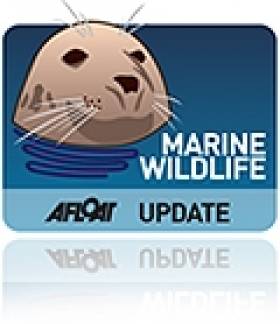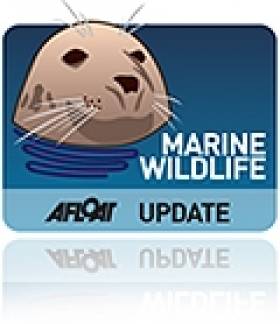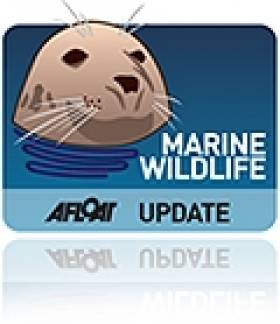Displaying items by tag: scientists
'Very Rare' Sighting of Albatross in Irish Skies
#MARINE WILDLIFE - Staff and students from the Galway-Mayo Institute of Technology spotted an black-browed albatross in what was a "very rare" sighting of the bird in Ireland's skies, The Irish Times reports.
The group was on board the State marine research vessel Celtic Explorer off the southwest coast when they witnessed the albatross, also known as a Mollymawk, which is noted for its dark eye stripe.
The black-browed albatross is normally restricted to the Southern Hemisphere, but Birdwatch Ireland's Niall Hatch said it has been spotted from headlands in Ireland in the past.
As previously reported on Afloat.ie, the GMIT group were among a party of 20 scientists from Ireland, Nothern Ireland and Scotland carrying out a study of whales, dolphins, seabirds and plankton in the Atlantic.
IWDG to Host European Cetacean Conference in Galway This March
#MARINE WILDLIFE - The Irish Whale and Dolphin Group (IWDG) will host the 26th annual European Cetacean Society Conference in Galway on the weekend of 24-25 March this year.
The Galway Bay Hotel will be the site for the main conference sessions, while workshops will also be held at the Galway-Mayo Institute of Technology (GMIT).
This year's gathering is being held under the theme 'Communication: Information and Ideas Worth Sharing'. Participants will be exploring communication between marine mammals as well as between marine scientists, and between scientists and the public.
As Ireland's Wildlife reports, the conference "offers a offers a great opportunity to find out more about whales and dolphins, their conservation, the cetacean research being carried out in Europe and to meet the researchers who are working to uncover the mysteries of these most enigmatic of creatures."
Registration is now open for the two-day event. For full details of the conference programme, venues and booking information, visit the European Cetacean Society Conference micro site HERE.
Scientists Tracking Seabirds by GPS
A new EU-funded project is tracking the movements of seabirds along the Atlantic coastlines of Ireland, the UK, France, Spain and Portugal.
The Future of the Atlantic Marine Environment (FAME) project aims to pinpoint areas that are important for Europe's seabirds. This knowledge may assist in the selection of marine conservation areas to protect declining species.
According to Surfbirds News, the researchers are taping tiny GPS trackers to the backs of seabirds, allowing the scientists to accurately pinpoint their movements between the birds' nesting colonies and the areas of sea they use to find food.
"Up to now we've known very little about the movements of these birds when they venture out to sea to find food," said seabird scientist Dr Ellie Owen. "But now, just when these birds need our help, we're on the cusp of filling this information void with vitally-important data."
Surfbirds News has more on the story HERE.































































